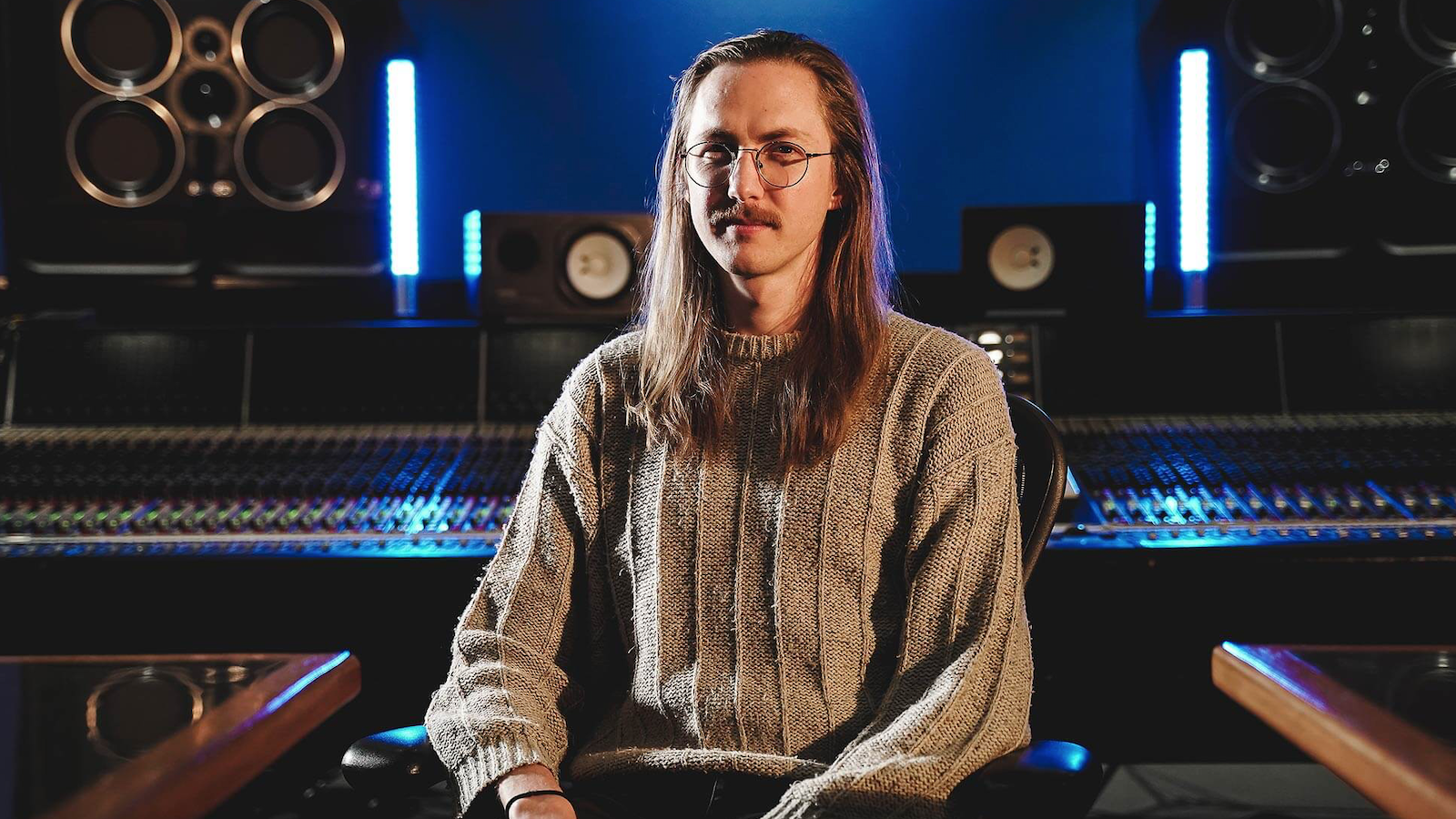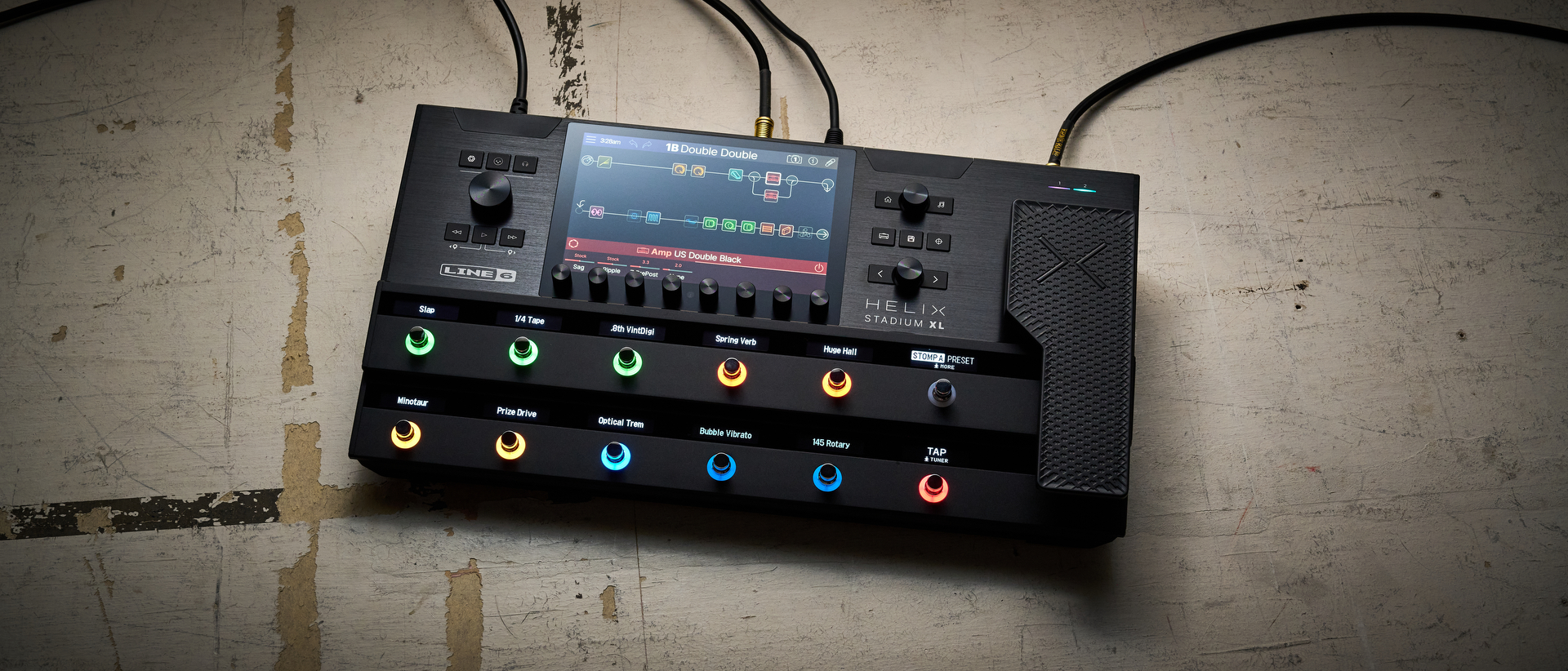Producer Profile: Kiah Gossner
Splitting his time between Adelaide and Sydney, producer, engineer and singer-songwriter extraordinaire Kiah Gossner is one of Australia’s leading forces driving the indie-rock revolution

Australia’s indie-rock scene has never shone so brightly – with artists like Didirri, MANE, Timberwolf, Lilac Cove and Oh Deliah constantly making waves with their bewitching beats and heart-melting hooks, it’s undeniable that now is the best time to be a fan of all things vibey. One thing all four of those artists have in common? They’ve all had their visions brought to life by Kiah Gossner, a multi-award winning producer, engineer, mixer, songwriter, bassist, conductor… The Adelaidian maestro basically does everything – and he does it all pretty damn well, if we may say so ourselves.
Splitting his time between Mixmasters Studio in Adelaide and Studios 301 in Sydney, Gossner is fast becoming one of the most sought-after names in Australian music. And before his schedule becomes truly chaotic with every last rocker in the country desperate to get their tunes in his hands, Australian Guitar sat down with Gossner for a chat about how he makes his magic happen.
Congratulations on being nominated for Best Studio Engineer by the South Australian Music Awards! How does it feel to be recognised for such an honour?
It’s a funny one. It’s really nice to be acknowledged for the work you do, but I don’t know – I know heaps of great producers and engineers doing a lot of cool things, and they aren’t any less talented or worthy of acclaim because they weren’t nominated for an award. I find awards in general a little bit of a weird thing. But it is really nice to be acknowledged for the stuff that I’ve been working on, totally!
Is there a pressure that comes with having the “award-nominated” or “award-winning” distinction under your belt?
I’m just going to keep doing what I do, and if people like it, that’s wonderful! I don’t feel any extra pressure from the normal day-to-day. It’s nice to get some kudos for the stuff that I do – that gives me some confidence that I can keep doing what I do, and hopefully people keep liking it!
On top of everything you do behind the console, you’re a pretty seasoned musician yourself. Do you find that your creative skills as a songwriter help to inform your role as a producer when you’re working with other artists?
Totally, man! I feel like I really came into this role as a producer and engineer from being a session musician first, coming up and being on tours with different acts and being exposed to a heap of different styles of music. I went to the Conservatorium and studied jazz, and that was kind of like my foundation, but I was also brought up playing in folk bands and indie bands and all that kind of stuff. And then I ended up working as a session player for just about every kind of genre you could think of, and as a producer, that’s a been a huge gift.
My education started with being a big music nerd, and I’m so grateful that I’ve been able to follow that as I go deeper into my career. The other big thing is all the people you meet in music – I’ve met a bunch of really wonderful, interesting, creative human beings, whether they’ve been collaborators or mentors or friends, people to get beers with or people to get cups of coffee with… That pathway and that experience, I guess, has been such a wonderful thing
Especially in recent times, you’ve worked on everything from electro-pop to acoustic rock. Do you feel comfortable working in basically any genre?
If you asked me that question a year or two ago, I would’ve said, “Yeah, I feel pretty comfortable in any genre!” And that’s still somewhat true, but I just feel like my tastes are refining a bit more and more. I guess it is still quite varied – I mean, I recently wrapped up a work that’s, like, contemporary classical and avant-garde jazz, and I also wrapped up a work with Didirri, who’s an folk-indie artist, and Timberwolf, who’s doing this slacker-rock/psyche thing – so it’s still varied, but I feel like I can definitely hear my own sounds shining through within those different genres.
All the latest guitar news, interviews, lessons, reviews, deals and more, direct to your inbox!
I guess when you first start producing, it’s this funny thing where everyone’s like, “Oh, you’ve gotta find your voice!” But I think that coming from a really diverse background, my voice is kind of this weird amalgamation of heaps of different things. I don’t want to come across as egotistical or anything, but it’s quite versatile, because there’s just been heaps of different music in my life, ever since I was young. And sometimes it’s a curse! I’ll find myself hitting my head against the wall over a record, going, “Why can’t I make this work!?” And then I’ll just have to take a step back and go, “Okay, I’m being too broad, I need to focus in on this particular thing and really make that come out in the music.”
If there’s one thing that stands out about your catalogue, it’s how you build up these really spacious, sprawling soundscapes where there can be four or five instruments all taking up equal space, but never overcrowding the mix. How do you about creating that feeling of roominess in your recordings?
Well firstly, thank you, because that’s something I do really try to achieve. I hate things getting too busy, but I also love having lots of layers in a song. It’s a fine line to walk, and you can very easily tip it over the edge. As a producer, I love exploring all the ideas. I’m always like, “You’ve got an idea? Cool, let’s take that in every direction we can!” Because that could be the thing that really makes a song. And so you end up with a session that’s full of ideas, and then it’s about going, “Okay, which of these ideas are driving the narrative? What’s supporting the story, and what’s the best way to communicate that story?”
The question we always come back to is, “What’s the song’s best life?” And there are more questions within that. What supports the song the most? Is it the vocal, or is it not the vocal? Is it the guitar that’s doing all the work here? Maybe it’s a string part – do we need to get some more strings in to make it this really epic Hollywood thing? What are we trying to achieve with all these parts? What does the song need? For me, the process is to find those key things, and then mix around them.
Lilac Cove is a good example – that track [“Through The Walls”] has heaps and heaps of layers, and especially towards the end of the track, there’s heaps of automation going on to kind of move things out of the way and then bring them up. But when you listen to it, it doesn’t sound like all those things are moving, it’s just that your attention shifts slightly. It’s kind of like the camera moving around on a set – when it pans out, you get a broader image, and then it will narrow in on something. I’m a very visual person like that, so I think having that perspective in an audio sense is very important. Microphones are cameras, and they’re capturing the scene that the song is trying to portray.
Do you have any secret weapons in the studio?
I’m a big analogue nerd – which can be, like, dangerously expensive [laughs]. I work between two studios – if I’m in SA I’ll be working out of Mixmasters, and if I’m in Sydney I’ll be working out of 301. They’re kind of like my two homes, and I’m very lucky because they’re both very well-equipped. But secret weapons… Anything that breaks up and gets distorted or saturated, or saturates things. I’m a big fan of doing weird things with tape, like running drums through a cassette or recording guitars with a tape deck at 15 ips and getting things all smushed up.
Anything that’s saturating something or taming transience, or, giving some colour to a mix – that’s my entire vibe right there. I’m a big fan of distortion and all that kind of stuff, too. A lot of my catalogue is pretty pop, indie and folk-heavy, which is funny because you don’t really think about distortion on pop songs – but y’know, I don’t think I’ve ever put a bass down without distorting the heck out of it. Snares, kicks, vocals… With a lot of vocals that I put down, to get them to sit in front of the mix I’ll saturate them and push them forward and do all that kind of stuff. I like to freak things out a bit and really push a piece of gear to its limits, if I can.

Ellie Robinson is an Australian writer, editor and dog enthusiast with a keen ear for pop-rock and a keen tongue for actual Pop Rocks. Her bylines include music rag staples like NME, BLUNT, Mixdown and, of course, Australian Guitar (where she also serves as Editor-at-Large), but also less expected fare like TV Soap and Snowboarding Australia. Her go-to guitar is a Fender Player Tele, which, controversially, she only picked up after she'd joined the team at Australian Guitar. Before then, Ellie was a keyboardist – thankfully, the AG crew helped her see the light…
